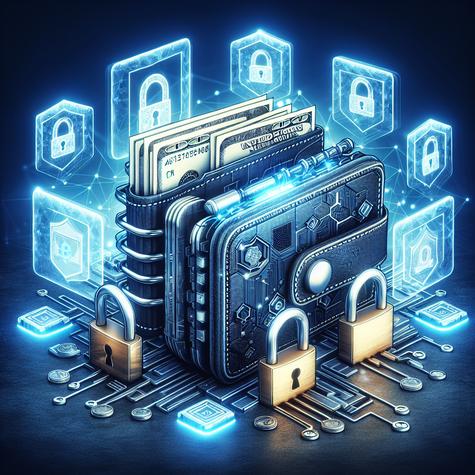 Securing your crypto wallet is vital to ensure that your digital assets are safe from hacking attempts. Hackers are continually finding new ways to seize your digital assets, so you need to stay one step ahead. So here is an informative guide to protect your crypto wallets:
Securing your crypto wallet is vital to ensure that your digital assets are safe from hacking attempts. Hackers are continually finding new ways to seize your digital assets, so you need to stay one step ahead. So here is an informative guide to protect your crypto wallets:
1. Understand the Different Wallet Types: Wallets come in many forms, such as hardware, software, and paper wallets. Hardware wallets like Trezor or Ledger are considered to be the most secure since they store your private key offline. Software wallets vary in security and can be targeted by hackers more easily. Paper wallets are a safer option but can also come with a risk if not handled correctly.
2. Private Key Security: Your private key is your main defense against hacking. Never share it with anyone and avoid storing it online where hackers can access it. If you must write it down on paper, ensure that paper is kept in multiple secure locations.
3. Use Strong, Unique Passwords: Passwords should be unique for each platform and include a combination of uppercase and lowercase letters, numbers, and special characters. Avoid using easy-to-guess passwords like “123456” or “password.”
4. Use Two-Factor Authentication (2FA): Enabling 2FA adds another layer of security. Even if a hacker cracks your password, they still need to bypass the 2FA which significantly improves your wallet’s security.
5. Regularly Update Your Wallet: If the wallet software or hardware requires updates, ensure you install them promptly. These updates often contain essential security patches.
6. Be Careful with Unknown Links: To protect your wallet from phishing, never click any suspicious links or download attachments from unknown sources.
7. Utilize Hardware Wallets for Large Amounts: If you possess a considerable amount of cryptocurrency, a hardware wallet is highly recommended. These wallets are immune to viruses and they are secured even if the device they are plugged into is compromised.
8. Be Wary of Free Wi-Fi Networks: Avoid accessing your crypto wallet on public Wi-Fi networks since they are often unsecured and easily targeted by hackers.
9. Keep Wallets Encrypted: Keeping your wallet encrypted puts another wall between a hacker and your assets.
10. Back-up Regularly: Regular backups of your wallet will save your assets in case you lose access to your device or the device gets damaged.
Lastly, continuity is crucial when securing your digital assets. Keep these practices not as a one-time activity but a regular journey towards ensuring the safety of your crypto wallet. Stay vigilant, informed about evolving threats and maintain a tight security protocol to successfully evade hacking attempts.


